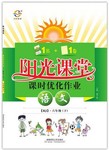题目内容
完形填空
Several years ago, the well-known writer and editor Norman Cousins became very ill. His body ached and he felt constantly tired. It was difficult for him to even ___1___ around. His doctor told him that he would lose the ability to move and eventually die from the disease. He was told he had only a 1 in 500 chance of survival.
___2___ the diagnosis(诊断), Cousins was determined to overcome the disease and survive. He had always been interested in medicine and had read a book, which discussed the idea of how body chemistry and health can be damaged by emotional stress and negative ___3___. The book made Cousins think about the possible ___4___ of positive attitudes and emotions. He thought, “Is it possible that love, hope, faith, laughter, confidence, and the ___5___ to live have positive treatment value? ”
He decided to concentrate on positive emotions as a way to treat some of the symptoms of his disease. In addition to his traditional medical treatment, he tried to put himself in situations that would ___6___ positive emotions. “Laugh therapy” became part of his treatment. He ___7___ time each day for watching comedy films, reading humorous books, and doing other activities that would draw out ___8___ emotions. Within eight days of starting his “laugh therapy” program, his pain began to ___9___ and he was able to sleep more easily. He was able to return to work in a few months' time and ___10___ reached complete recovery after a few years.
解析:
|
(1) 由下句可知,空格处应用move,表示“四处走动”。(2) 由于医生给Cousins下了诊断,而Cousins决心战胜疾病恢复健康,所以上下文之间表示让步关系,用despite。(3) 由下文的positive attitudes and emotions可知此处应用attitudes。(4) 上句提到情绪压力和消极的态度对健康会造成危害,反过来讲,积极的态度和情绪对身体应该是有益的。(5)love, hope, faith, laughter, confidence 均为褒义词,所以该空格处也应用褒义词,结合上下文语意,此空应表示“活下去的愿望”。(6) 该句意为“除了传统的药物治疗,他设法使自己处于能带来积极情绪的状态中”。bring about导致,带来;set about着手,开始;put up搭建;make up编造。故A项符合句意。(7)afford 承担,负担;appoint任命;offer主动提供;arrange安排。本句句意为“他安排时间每天看喜剧,读幽默书籍,以及做一些来促使他产生积极情绪的事情”。(8)Cousins 做这些事情的目的应该是促使他产生积极的情绪。(9)Cousins 的laugh therapy有了效果,故疼痛有所减轻。(10) 本句说明积极的情绪使Cousins的疾病有了好转,他在几个月后能够重新工作,而且在几年后彻底痊愈了。 |

 阳光课堂课时优化作业系列答案
阳光课堂课时优化作业系列答案
| |||||||||||||||||||||||||||||||||||||||||||||||||||||||||||||||||||||||||||||||||||||||||||||||||||||||||||||||||||||||||||||||||||||||||||||||||||||||||||||||||||||||||||||||||||||||||||||||||||||||||||||||||||||||||||||||||||||||||||||||||||||||||||||||||||||||||||||||||||||||||||
| |||||||||||||||||||||||||||||||||||||||||||||||||||||||||||||||||||||||||||||||||||||||||||||||||||||||||||||||||||||||||||||||||||||||||||||||||||||||||||||||||||||||||||||||||||||||||||||||||||||||||||||||||||||||||||||||||||||||||||||||||||||||||||||||||||||||||||||||||||||||||||